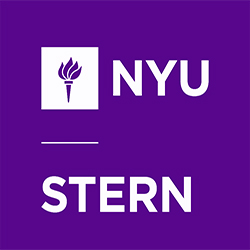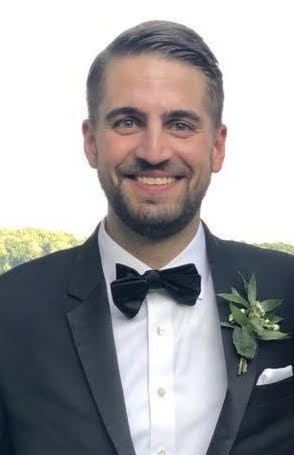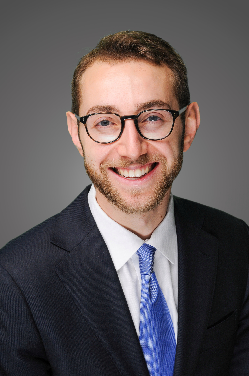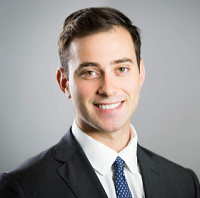 Sam Greene is an MBA2 specializing in finance, business analytics and strategy. At Stern, he serves as a VP of Mentorship with the Private Equity & Venture Capital Club and VP of Communications with the Entrepreneurship & Start-Up Association in addition to other leadership roles on campus. Sam graduated from the University of California, Berkeley in 2015 with a Bachelor’s in Molecular and Cell Biology.
Sam Greene is an MBA2 specializing in finance, business analytics and strategy. At Stern, he serves as a VP of Mentorship with the Private Equity & Venture Capital Club and VP of Communications with the Entrepreneurship & Start-Up Association in addition to other leadership roles on campus. Sam graduated from the University of California, Berkeley in 2015 with a Bachelor’s in Molecular and Cell Biology.
In my previous blog post, I wrote about failing to secure a summer internship in the fall recruiting process in the first-year of the MBA. I was devastated, but judging a process by an outcome destroys meaning in the process itself. Failing to secure an internship pushed me out of my comfort zone and forced me to learn a valuable lesson: while Stern provides structure and access to opportunities, our own individual successes are our own personal responsibilities.
One of the single most important skills I practiced throughout the MBA is how to network effectively. I think the old adage that you never get what you do not ask for rings particularly true for me. It was only through networking and asking for help that I won the opportunity that made the rest of my internship experience possible. Hustle matters, it is alive and well, and go-getters who spend time learning about others’ careers are better positioned to keep growing in their own careers. It’s this desire to continuously learn and keep growing that informs my goals as a Vice President (VP) on the board of the Private Equity and Venture Capital (PEVC).
In my role as a VP I manage the day-to-day execution of the venture capital recruiting track at NYU Stern. In only its second year, the VC recruiting track seeks to prepare students for careers in venture capital. In years past, the person in my role was tasked with running a mentorship program that pairs MBA students with VC alumni to help and students network there way into internships. In theory, the program should have helped drive performance in recruiting statistics but in practice, this did not happen. Very few, if any students, converted their mentor-mentee relationships into summer internships in venture capital. If we are measuring the program’s success by the number of students that participated in the program and subsequently interned in venture capital the following summer, the program was a failure. But at least it failed fast and the experience taught us how to build something better!
In the spring, while transitioning into the VP role, I hopped on calls to distill feedback from the ten VCs and the ten students that participated in the mentorship program. I learned something very interesting. Almost all the VCs and students independently identified the same problem with the program: there was not a clear ‘ask’ for either the mentors or the mentees. VC mentors, while excited to help, were not clear on the purpose of the program. MBA students, while eager to learn, did not know where to start in their recruiting process. In a way, the relationship was a non-starter; there was no value-creating deliverable driving the process forward. In order to build a successful VC career track we needed to be clear on the mission and purpose of the program: to best prepare students to recruit, interview and secure Venture Capital internships.
I went back to the drawing board after my summer internship and started chatting with classmates to understand the DNA of the VC recruiting process better. I learned that one of the drivers for a successful recruiting process is delivering a well-researched investment thesis to funds. Chain, my classmate and a first-year MBA, coincidentally, had developed a program to help him and some classmates recruit for VC the previous fall. His program paired four MBA students with four VCs to develop investment theses over the course of an academic year. In the end, two students secured internships in VC, one already signed for an internship in Investment Banking and the other recruited for start-ups. A 50% success rate among the students participating in the program.
In partnership with Chain, we launched the Stern Venture Thesis program four months ago. Stern Venture Thesis was a synthesis of the legacy mentorship program inherited by PEVC and the thesis program that Chain created from 0 to 1. Chain’s thesis program succeeds in defining a clear ‘ask,’ an investment thesis produced in April at the end of the first-year of the MBA program. The mentorship program brings size and scope, with over a hundred alumni in the network and over fifty actively engaging with the club. I spent the end of the summer and beginning of the fall growing the supply by marketing the program to the alumni in the mentorship network. Our marketing effort yielded fourteen interested VCs by the time applications for the program launched in early October. On the demand side, word-of-mouth and digital marketing on CampusGroups drove over 50 students to attend our kick-off event in October. From the 50 students who attended, 17 applied to the program and 7 were selected to participate based on their interviews and interest in recruiting for venture capital. As of now, the MBAs are paired with thesis advisors at leading funds including Greylock, Company and 500startups based on mutual interests in topics. Our topics this year range from IoT, cybersecurity and developer tools to e-commerce enabled gen-z market-places.
I’m super excited to continue networking with alumni to grow my own network but even more excited about deepening Stern’s connection with its alumni through mutually-beneficial programs that give ownership to students and value to VCs
Looking forward, me and my team will be building out a website to host the final deliverables and clearly lay out a timeline for the program in 2021 – 2022. Aleksija and Alec are transitioning from their roles as AVPs to VPs and beginning to make introductions to alumni in the network. In an effort to strengthen our partnership with the undergraduate program, we are having conversations with the Stern Venture Society, essentially the undergraduate equivalent of the PEVC club, to plan a venture capital competition in the spring and provide more educational programming to both clubs. Lastly, in partnership with ESA, we are planning some VC panels in February to bring back alumni to Stern and partner with affinity clubs such as JSA, AHBBS and SWIB. Exciting things are happening at Stern in VC and I’m excited to be helping shape the future of the club and Stern presence in the venture capital community.
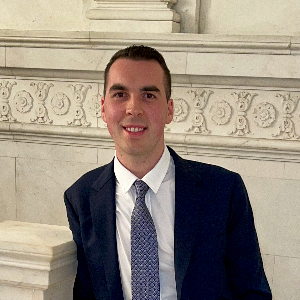 Brandon Quinn is an MBA2 specializing in Strategy and Business Analytics. Prior to Stern, Brandon worked in financial regulation where he examined some of the largest US brokerage firms. At Stern, Brandon serves as a Graduate Ambassador, Career Fellow, VP of Admissions for the Management Consulting Association (MCA) and VP of Marketing for the Business Analytics Club (BAC).
Brandon Quinn is an MBA2 specializing in Strategy and Business Analytics. Prior to Stern, Brandon worked in financial regulation where he examined some of the largest US brokerage firms. At Stern, Brandon serves as a Graduate Ambassador, Career Fellow, VP of Admissions for the Management Consulting Association (MCA) and VP of Marketing for the Business Analytics Club (BAC). 